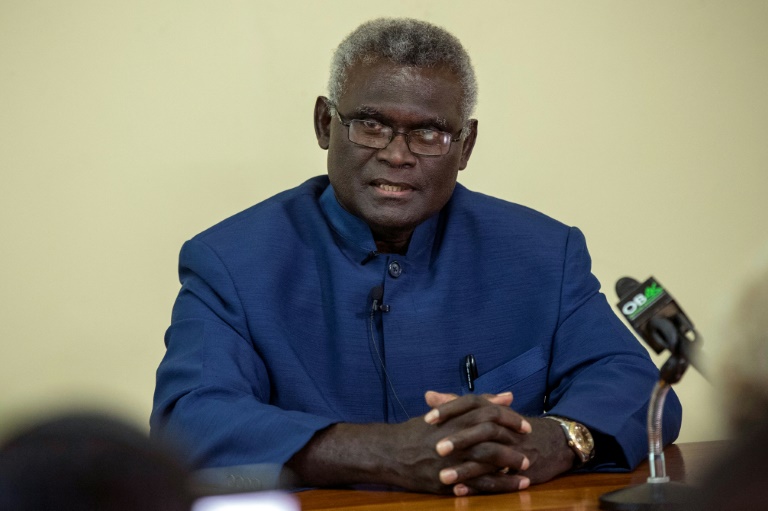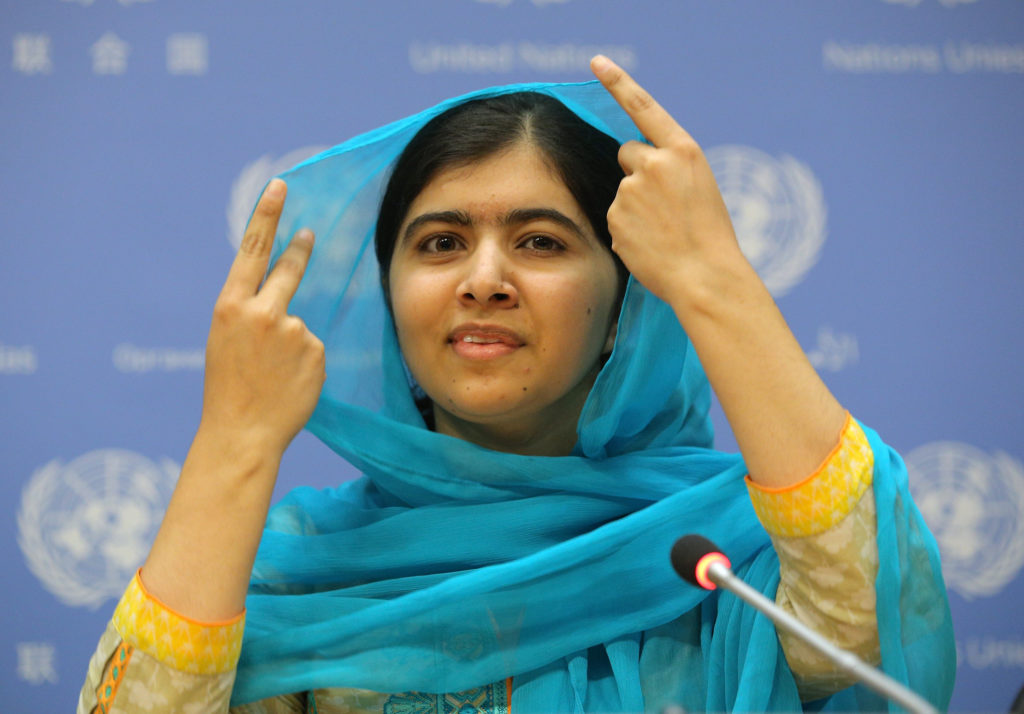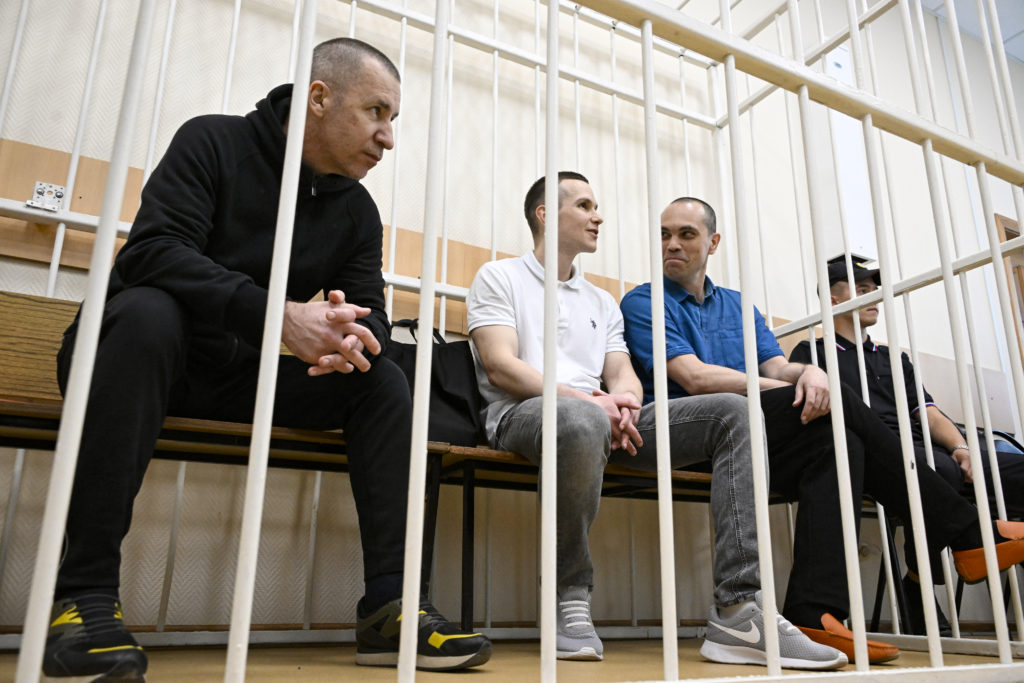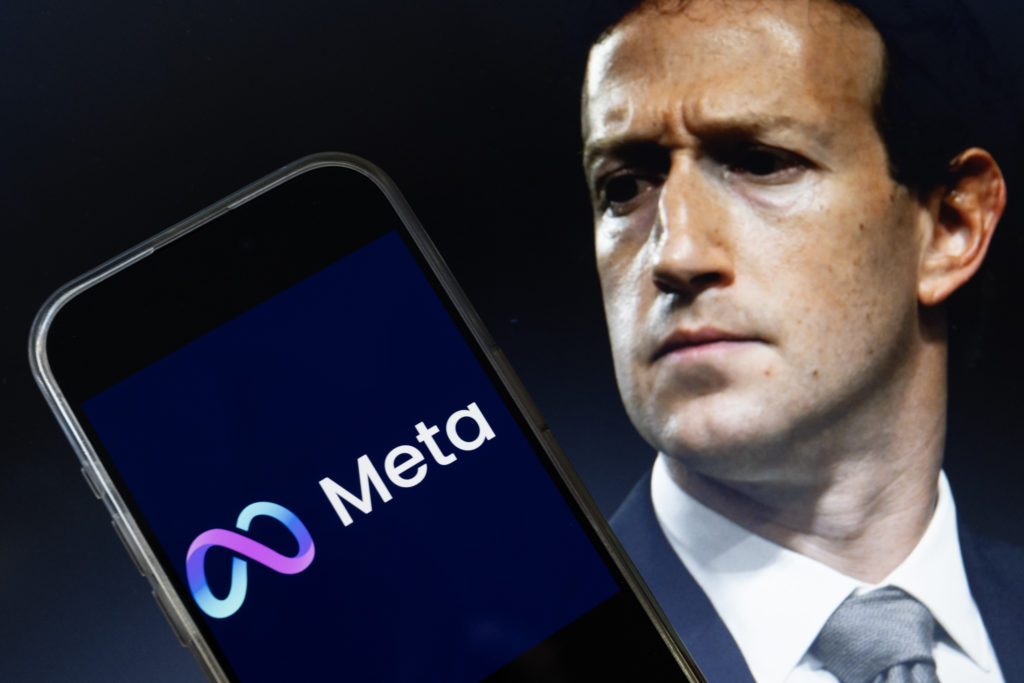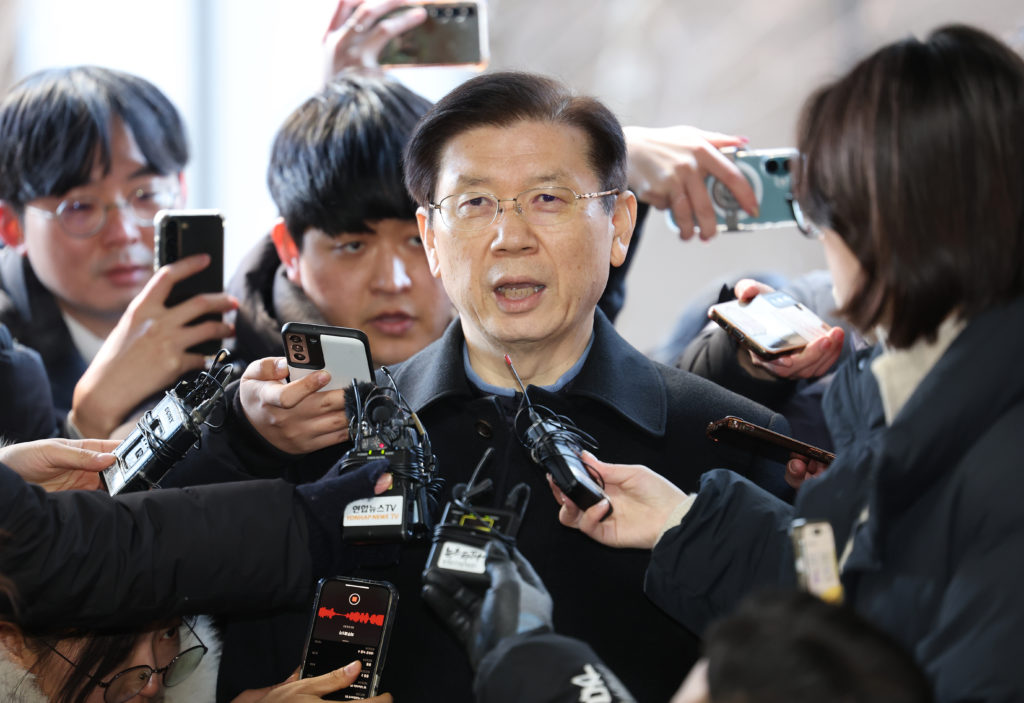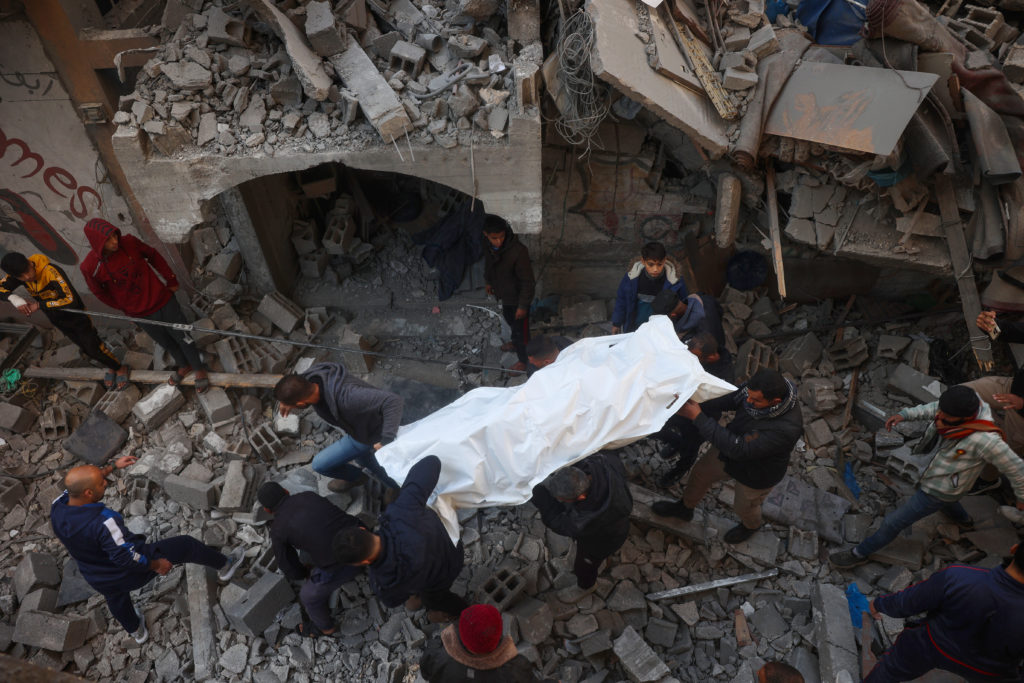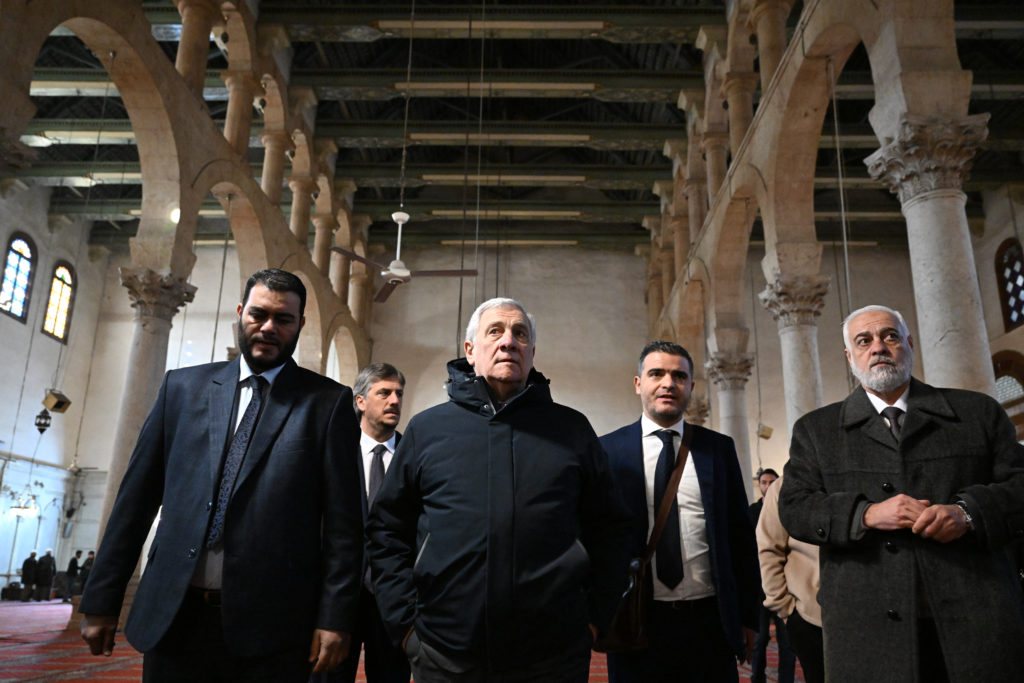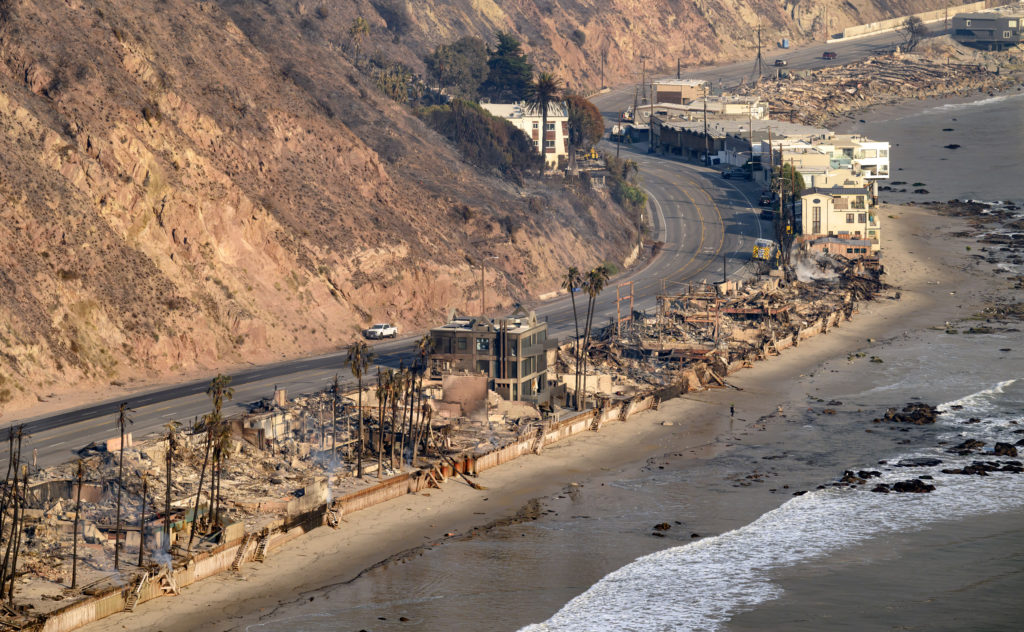Embattled Solomon Islands Prime Minister Manasseh Sogavare survived a no-confidence vote Monday, while accusing “Taiwan’s agents” of orchestrating recent political violence that plunged the Pacific island nation into crisis.
The pro-Beijing leader comfortably saw off an opposition attempt to oust him, winning 32 votes to 15 after a fractious and hot-tempered day-long debate.
The febrile scenes in parliament — in which lawmakers traded claims of corruption, coups and shadowy foreign support — echoed recent anger on the streets that prompted the arrival of hundreds of international peacekeepers.
Three days of rioting late last month left the Chinatown area of the capital Honiara in ruins and claimed at least three lives, with dozens of buildings destroyed.
Ahead of Monday’s vote, armed troops and police from neighbouring Australia, Fiji, Papua New Guinea and New Zealand helped operate checkpoints across rain-soaked downtown Honiara to forestall more unrest.
They used shipping containers to seal off areas of the rubble-strewn capital, closed the port to ferries from neighbouring islands and enforced a city-wide liquor ban.
Authorities also warned people against posting inflammatory statements on social media. The prospect of further violence prompted the US consulate in Honiara to restrict operations.
The crisis erupted late last month when protests about Sogavare’s policies turned violent, fuelled by poverty, unemployment and inter-island rivalries in the nation of 800,000.
The prime minister has refused protesters demands to step down, telling parliament on Monday that leaving office under such circumstances would be surrendering “to the dictates of hooligans and lawlessness”.
“We cannot entertain violence being used to tear down a democratically elected government,” he said.
Large numbers of people were seen leaving the capital for the provinces on chartered ferries Sunday ahead of the no-confidence vote, expecting further trouble.
Many of Sogavare’s detractors come from Malaita. Residents there believe the country’s most populous island does not get a fair share of resource revenue and is neglected by the central government.
An underlying complaint against Sogavare is his 2019 decision to switch Honiara’s diplomatic allegiance to China from Taiwan, which had close ties with Malaita.
– ‘Foreign cronies’ –
China and Taiwan have competed for influence in the Pacific for decades, with both sides using development aid as bait, as Beijing attempts to isolate a rival it sees as a rogue province resisting unification.
Sogavare said the opposition had conspired with Taiwan to incite unrest over the 2019 switch in an “attempted coup”, although he offered no solid evidence.
“If I am to be removed, it must be by the legal process, by members of parliament, not by calls to resign from Taiwan’s agents,” the 66-year-old said during an often furious two-hour parliamentary address.
At one point the veteran leader rose to his feet and slammed his chair up and down while screaming at opposition leader Matthew Wale, who brought the motion.
Wale accused Sogavare of using Chinese funds to prop up his government, saying “foreign cronies” were being allowed to strip the country’s natural assets.
The opposition leader condemned last month’s rioting, but added “it pales in comparison to the looting happening at the top at the expense of ordinary Solomon Islanders”.
Wale claimed that Beijing and Sogavare were funnelling payments to secure support ahead of the no-confidence vote.
The central bank has put the damage caused by the riots at US$67 million, saying 63 buildings in the capital were burned and looted.
It said the unrest would cost about 1,000 jobs and stifle economic growth, warning the country was experiencing “development in reverse”.

